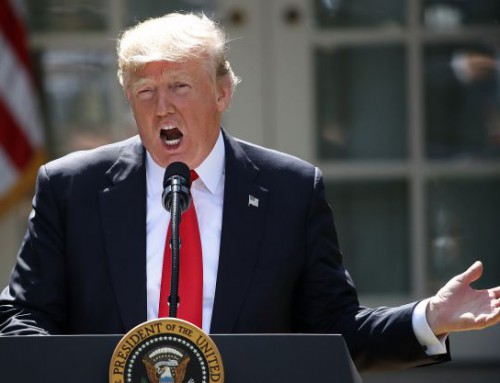Thirty years ago, two landmark efforts sought to impose “reform” on the Department of Defense. The first was the Goldwater-Nichols Act of 1986 that attempted to impose “jointness” on the Pentagon by fundamentally altering the personnel management system; making the Chairman of the Joint Chiefs the principal military advisor to the President; and creating a Vice Chairman. The second was the Packard Commission that attempted reforming the acquisition process the same year.
Both endeavors were forced on a very unwilling Department of Defense by perceptions of colossal operational and procurement fiascoes. The Desert One raid of April 1980 that failed to rescue U.S. personnel held hostage by Iranian “students” who seized the American Embassy in Tehran; the bombing of the Marine barracks in Beirut, Lebanon killing 241 leathernecks; and the almost comical storming of Grenada a day after the Marine disaster in late October 1983 were cited as examples of American military incompetence. And these events were living in the shadow of the loss of the Vietnam War less than a decade before.
Against the vehement protests of Defense Secretary Caspar Weinberger, the Packard Commission was convened. Allegations of $600 toilet seats and $6000 hammers were proof that DoD acquisition was rife with waste, fraud and abuse. In fact, it turned out that the flawed accounting system was at fault and that hammers did not cost $6000–a reality that carried no weight. In light of these abuses and operational blunders, Congress had no alternative except to “reform” the Pentagon.
Today, the Armed Services Committees of both Houses of Congress have made Pentagon reform a top priority and with good reason despite the acknowledged prowess of American military might. Hence, a Goldwater II exercise will be underway to review and update the two 1986 reform efforts.
The intent is on the mark. The Pentagon is fair game for improvement. However, do not count on these efforts addressing the greatest dangers to American security that will not be resolved by focusing on the Department of Defense alone.
First, this is 2016 not 1986! The U.S. has the finest and arguably the most competent military in the world. Two wars in Iraq and one in Afghanistan as well as dozens of smaller engagements have been competently and often brilliantly conducted by the U.S. military. Failure was not due to the shortcomings of the American military.
Too often, the U.S. military became the surrogate for the inability to provide a “comprehensive” or whole of government approach to resolving crucial political problems. The U.S. military decisively if not overwhelmingly defeated or destroyed its adversaries. But it could not nation build in Afghanistan or stifle the Sunni versus Shia violence that plagued Iraq and has led to the emergence of the Islamic State. Failure here as well as in other interventions including Libya and Syria rests on a flawed national security organization with blame and accountability residing on both ends of Pennsylvania Avenue.
Second, the major threat to the U.S. military today, surprisingly, may not be a “rising” China, a “recrudescent” Russia or North Korea, Iran and the Islamic State. Instead, internal uncontrollable cost growth inside the Pentagon of about 5-7% a year above inflation will far exceed the level of likely future defense spending. At 7% per annum, principal doubles in ten year. Unfortunately, the Pentagon does not have the tools or the authority to contain this explosive cost growth.
If left unchecked, sometime during the first term of the next president, the U.S. military will become a “hollow force,” that is a force that will lack the training, readiness and the weapons system to carry out its missions. The nation went through the horrors of a hollow force post Vietnam. To repeat this tragedy would be a disgrace.
What to do?
A Goldwater II is fine. However, what is really needed is an intensive, intrusive and comprehensive examination of the National Security Act of 1947 as amended across the whole of government including both the Executive Branch and Congress. That examination must analyze the security environment and the strengths and weaknesses of all of the relevant branches of government in providing for the common defense and the safety of the nation.
It is hard to imagine a military better than today’s. Of course, improvement is important. But unfortunately, the current focus on a Goldwater-Nichols redux will supply the wrong answer for the wrong question. Unlike 1986, it is the government not the Pentagon that bears the burden of being reformed if the nation is to be kept safe.
______________________________
Harlan Ullman is UPI’s Arnaud de Borchgrave Distinguished Columnist. He is Senior Advisor at the Atlantic Council and at Business Executives for National Security (BENS) and chairs two private companies. His latest book is A Handful of Bullets: How the Murder of Archduke Franz Ferdinand Still Menaces the Peace.






Comenteaza